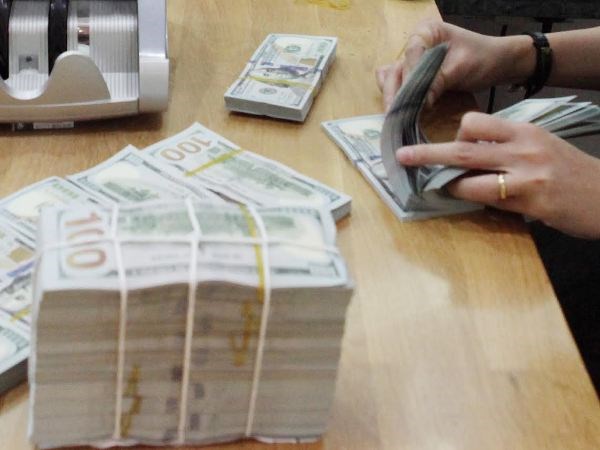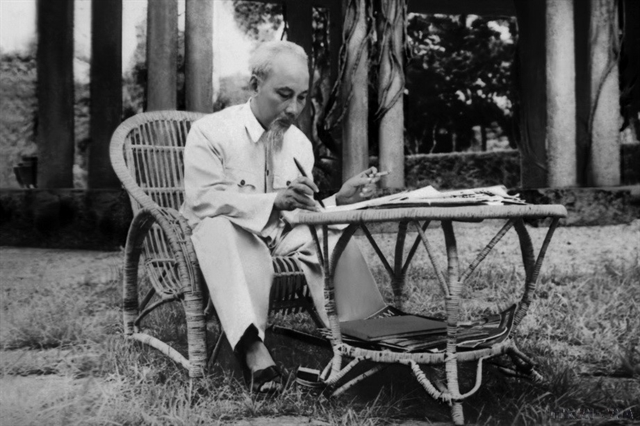 Economy
Economy

The State Bank of Vietnam (SBV) on Wednesday set the daily reference exchange rate for the US dollar against the đồng at VNĐ24,059 per dollar, up VNĐ6 from the previous day.

|
| A bank teller counts dollars in a transaction office in Hà Nội. The increase in the USD/VNĐ exchange rate has impacted many industries. VNA/VNS Photo |
HÀ NỘI — The significant appreciation of the US dollar against the Vietnamese đồng has adversely affected many firms that import and borrow in the greenback, while firms that have foreign currency revenue from exports have benefited.
The State Bank of Vietnam (SBV) on Wednesday set the daily reference exchange rate for the US dollar against the đồng at VNĐ24,059 per dollar, up VNĐ6 from the previous day.
Commercial banks on the day also followed the SBV’s move. Vietcombank on Wednesday listed the buying rate at VNĐ24,190 per dollar and the selling rate at VNĐ24,560 per dollar, both up VNĐ70 from the previous day. BIDV also raised both rates by VNĐ60 per dollar.
In the unofficial market, the dollar price on Wednesday was listed at VNĐ24,440 per dollar for buying and VNĐ24,530 for selling, up VNĐ70 and VNĐ80, respectively, compared to the previous day. This was the first time since the beginning of this year that the dollar price on the unofficial market exceeded the VNĐ24,500 mark.
The increase in the USD/VNĐ exchange rate has impacted many industries.
The seafood, rubber, and food industries are considered to benefit the most from the dollar appreciation as most of their revenue comes from exports, and their debts in the dollar are not large.
For the technology industry, because it benefits from outsourcing and software export activities, the exchange rate rise impact is more favourable than harmful.
As for the textile industry, most raw materials of the industry are imported from abroad and then processed for export, so the exchange rate fluctuation has little effect on the industry’s business results.
Meanwhile, according to Mirae Asset Securities Vietnam Company (MASVN), based on financial statement data of firms, some firms including Power Generation Company No3 (PGV), Quảng Ninh Thermal Power Company (QTP), Hoa Sen Group (HSG), PC1 Company (PC1), may currently be negatively affected by the rise of the dollar as most of their raw materials must be imported from abroad.
Commenting on the impact of the exchange rate increase, Đinh Quang Hinh, head of VNDirect Securities Company’s macroeconomics and market strategy analysis division, said the increase of the dollar has led to increased pressure to repay foreign debt, especially in the private sector. Moreover, the dollar rise has also increased inflationary pressure due to increased import prices of input materials and consumer goods.
The greater the exchange rate pressure, the narrower the room for loosening domestic monetary policy, Hinh said.
Hinh forecast the SBV will still support stabilising the exchange rate this year thanks to a high trade surplus, and stable FDI and remittance flows.
A stabilisation of the exchange rate within a suitable range will minimise negative impacts and improve the competitiveness of Việt Nam's exports, Hinh said.
To reduce pressure on the exchange rate, the SBV recently reactivated T-bill issuance activities after suspending them since early March 2023. Accordingly, in the last five consecutive trading sessions, the SBV successfully offered VNĐ70 trillion in 28-day bills, withdrawing a corresponding amount of the đồng from the banking system. — VNS




